YeuEmMaiMai
Extremely [H]
- Joined
- Jun 11, 2004
- Messages
- 34,117
With MS taking Windows 10 where people do no want to go, what do you think of this OS
Pretty Alpha so far but it looks promising
Pretty Alpha so far but it looks promising
Follow along with the video below to see how to install our site as a web app on your home screen.
Note: This feature may not be available in some browsers.
It would be good to see a Enthusiast based Linux focused around working with current systems (cpu/chipsets) with solid Video and Sound Card device support for gaming and a common set of apps for that market - As Microsoft moves onto more and more of a cloud model it may open the door a bit more for other OS's to gain a larger foot-hold.
You mean like almost all Debian distros such as Ubuntu and Mint?
Most have little to zero support high-end audio (Creative AE5 as example), there are many other examples, and yep, it works, just not at a level windows does, and in-part that is on the device manufacturers as well...
Most have little to zero support high-end audio (Creative AE5 as example), there are many other examples, and yep, it works, just not at a level windows does, and in-part that is on the device manufacturers as well.
We have yet to have a true Enthusiast Linux Distro vs. Distro's focused on the mainstream many... One that approaches companies like Razer, Corsair, nVidia, Creative Labs, Asus, works to get the same or better driver support for devices like gaming mice and keyboards, sound cards, and full support of all latest features of current video cards, etc... Also parallel to those efforts get the big game titles on-board - most of the daily apps this market uses as point out is already in place.
Yeah, after checking their site, I'm not really interested. They say they developed this OS "from scratch", but what exactly is their definition of "from scratch" when it seems like Windows 98 with some icon changes?
I don't know what you expect? Those Distros provide drivers the best they can, but not all companies (like Intel, like Creative) will release the proper information for them to make higher end drivers. So it is up to those companies to write drivers for the distro. Nvidia does write Linux drivers. Realtek writes sound drivers for linux as well. So what you are saying doesn't make sense. Right now you can build an Ubuntu (or insert your favorite current distro here) system with up to date Linux nvidia and realtek drivers.
Exactly, you’ve nailed my point, right... we have yet to have a true ethusist Linux distro - if we did, they would be active in working with those companies that need improvement and have partner programs in place that would drive them much the same as Windows.
I expect nothing, not really my way of things - I’m more of a product filling the needs of a market as end result to create and/or fill demand vs entitled and expectations.
Yet again I have no idea what you mean by an Enthusiast Linux distro. You do realize that these companies send drivers into Windows? Microsoft does not write drivers for these companies. So in that sense Microsoft is far less of an enthusiast distro. this is also why a lot of people complain when a new version of Windows comes out because a lot of companies don't write drivers appropriate for the new version.
Now on the Linux side you absolutely have people that are trying to write drivers that will work with common Hardware. This is why you have things like the nouveau driver you find in many Linux distributions. That is actually people writing their own driver for NVIDIA gpus. They also right drivers for other hardware too. so in essence you are asking for the very thing that is actually currently going on in Linux distributions...
Most have little to zero support high-end audio (Creative AE5 as example), there are many other examples, and yep, it works, just not at a level windows does, and in-part that is on the device manufacturers as well.
We have yet to have a true Enthusiast Linux Distro vs. Distro's focused on the mainstream many... One that approaches companies like Razer, Corsair, nVidia, Creative Labs, Asus, works to get the same or better driver support for devices like gaming mice and keyboards, sound cards, and full support of all latest features of current video cards, etc... Also parallel to those efforts get the big game titles on-board - most of the daily apps this market uses as point out is already in place.
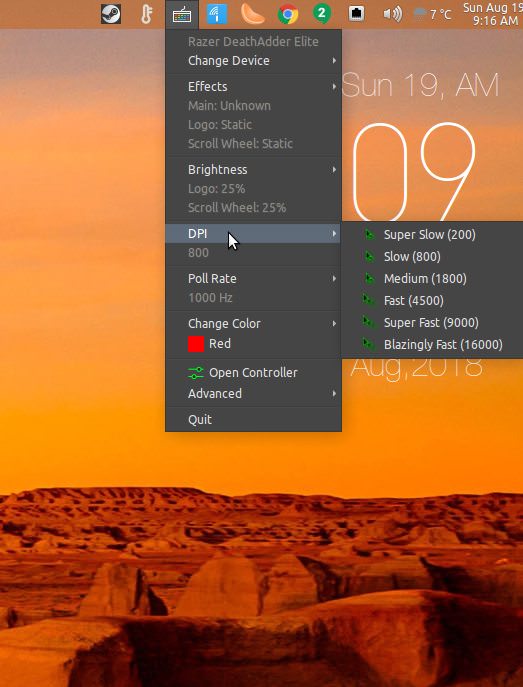
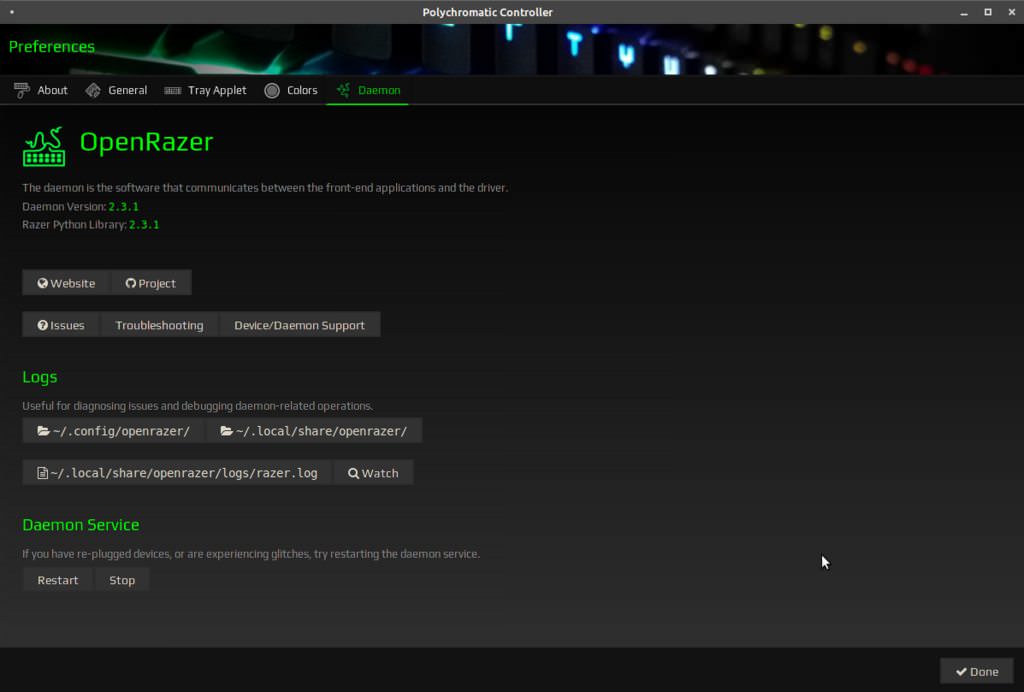
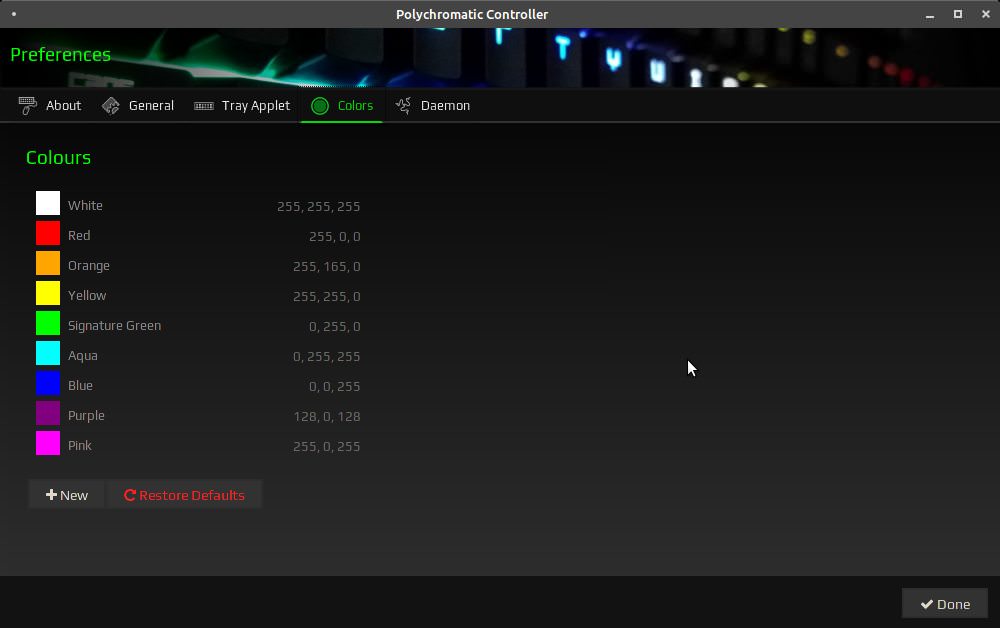
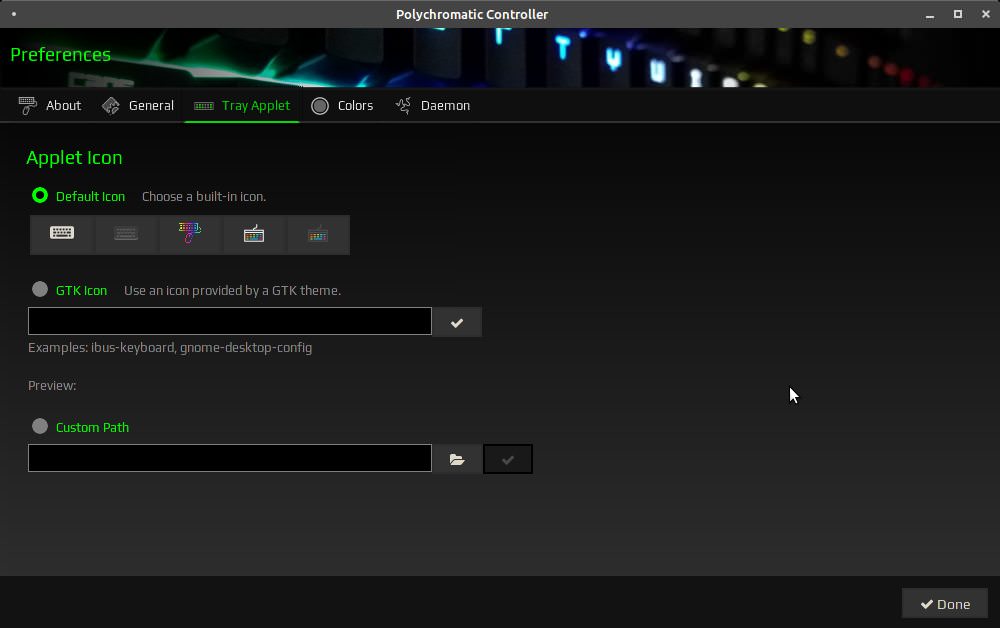
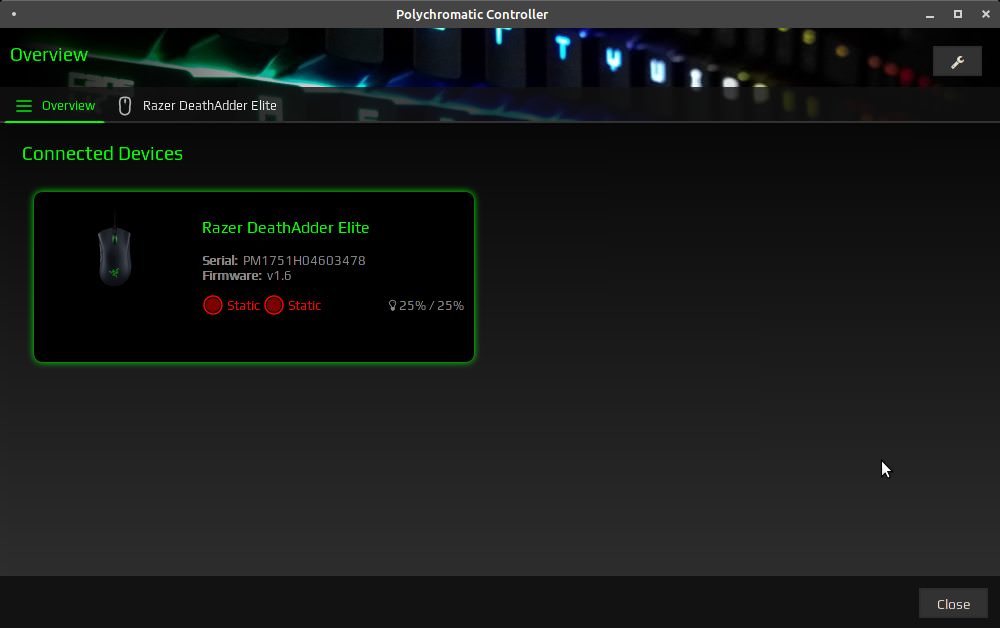
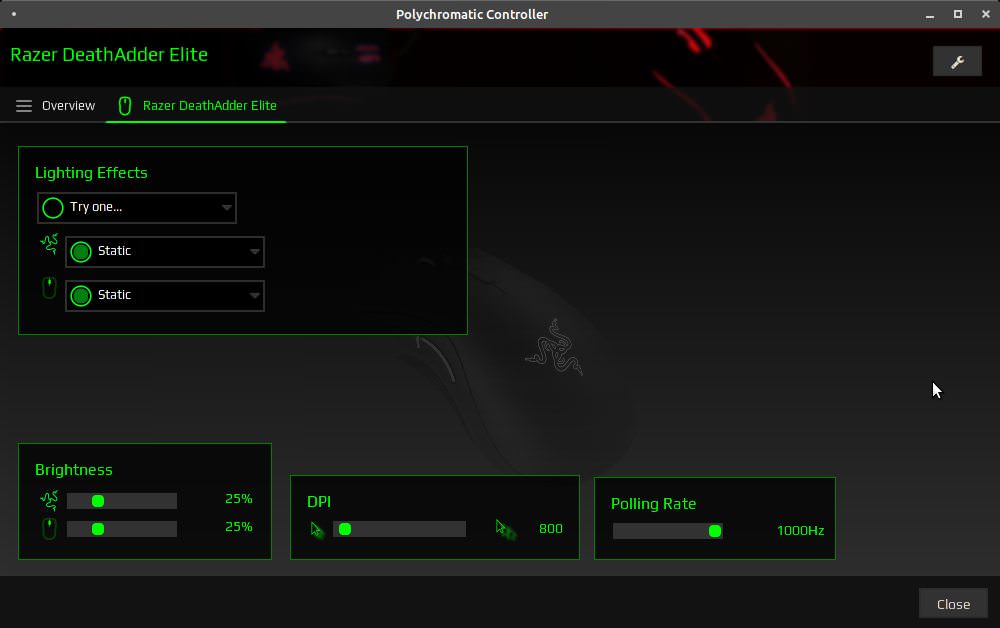
I'm currently running Razer products and a Creative Labs sound card. Granted my sound card is an older Creative Labs card. Nvidia drivers are on par with their Windows counterparts.
View attachment 97723
View attachment 97724
View attachment 97725
View attachment 97726
View attachment 97727
View attachment 97728
Hand selecting components one can do pretty well yes no doubt... There's also problems though too (as some have noted in this thread), but yes its notable that improvements are being made no doubt. Maybe at some point SteamOS will expand beyond as they coin it, certain hardware and for living room entertainment environment.
Thank you for sharing... have you found the Razer support to work well?
Creative AE-5 lacks (full) support, and is a good example of a motivated distro (with a focus to drive gaming/enthusiast) could help influence better support from manufactures and even provide a validation system.
The creative ae-5 is crap anyway. Windows for high end audio is an oxymoron. Seriously high end sound is still, and well may always be the domain of the Mac. They are still the only OS with true low latency input. Linux has come along way with jack2 ect... but its still not as slick as macs sound system. Windows is even worse.
I have no idea what the state of the Creative sound cards is with Linux these days. I'm sure playback is likely fine, any silly features like glowing RGB lights ect I doubt work.
Most creative cards do work... its the silly BS stuff like crystalizers and stuff that don't have Linux support. However as that is all BS software and not hardware related I don't think its a big deal.
Most high end audio cards just work under Linux. (if you really want good sound stay away from Creative). The xonar cards just work and I have no doubt are a much better bang for the buck then the creative stuff if your looking for reasonable priced internal cards.
If you want to know the state of high end Linux audio... the alsa project lists the status of hardware support for most vendors. Many high end audio device manufacturers support Linux directly these days... and many others use chips which have full support.
http://www.alsa-project.org/main/index.php/Matrix:Main
PS... if you want Creative style Crystalizers and all that other BS. You don't need Creative software;
https://github.com/wwmm/pulseeffects
Buy a good decent low latency, 24/196 low sig to noise card like the Xonar dsx for under 100 bucks... or Xonar stx for $200 or so if your into home recording or something. Install pulse effects if your into that type of stuff... and everything will work just fine. Fully support baked into the kernel.
Most have little to zero support high-end audio (Creative AE5 as example), there are many other examples, and yep, it works, just not at a level windows does, and in-part that is on the device manufacturers as well.
We have yet to have a true Enthusiast Linux Distro vs. Distro's focused on the mainstream many... One that approaches companies like Razer, Corsair, nVidia, Creative Labs, Asus, works to get the same or better driver support for devices like gaming mice and keyboards, sound cards, and full support of all latest features of current video cards, etc... Also parallel to those efforts get the big game titles on-board - most of the daily apps this market uses as point out is already in place.
Yep, especially after they gimped the audio stack. You now only get obfuscated access and big latency.The creative ae-5 is crap anyway. Windows for high end audio is an oxymoron.
You really just want to debate - I’ve been on Microsoft dev teams, from server OS to desktop and even failed Linux attempt - I’m Linux and Microsoft Engineer (MS engineer of every add-on offered by MS) and lead product engineer that developed first running 64 but Althin with/for AMD, and in IT since the mid 80’s (that’s all a small part of who, or what I get) - so do I get it you say, ya I get it pretty well in fact, lol.
Clearly the comments made are from the viewpoint of looking from the outside - there’s a good reason MS OS’s often used to be optizmized for Intel (vs AMD) and it had little to do with sales - but with partner programs and relationships between the two companies - as example only of course, there’s a lot more to it all certainly.
Your comments are not just from the outside, they are from someone that doesn't even care or try to understand. You point out things that are repeatedly debunked and then try to put up your MS creds as some kind of true experience? If you are truly a Linux engineer, then how do you not know about a lot of these things you claim are not working on Linux? How can you claim that Linux is somehow less of an enthusiast OS? That makes zero sense.
As for the partnerships having nothing to do with sales, what?! It has everything to do with sales. Other companies partner up because of sales and the marketplace.
I stand by my comments NoOther, for some silly reason you want to debate - Just because you feel you know it all, and it has to be your way or the highway, and that only products you say should be can be... that doesn't mean your right. Stop putting words into my mouth too bud, I'm not bashing Linux or saying nothing words... good grief -
Either you work at Intel (perhaps nVidia too), or you have no clue how partner relationships affect raw tech products before they are validated and sold publicly - and how programs like Intel has imposed on builders, or GPP (nVidia) - Much the same as how well nVidia has worked with (partnered) manufacturers to make gsync a mainstream desired product (well done, and an example of my opinion for focused linux distro). Don't cry if you work at Intel and think I'm your evil enemy. I built with Intel the post Athlon64 the their next Gen Platform that did well too when put out to crn/zdnet.
You talk as Linux is 1 distro all alike and each one does it all... which isn't the case, just as Windows10 Home is not the jack of all trades in the MS world - Another project I was part of was Nitix, a perfect example of a very targeted focused linux distro (and look at them today, snagged by IBM in huge success/win). Another example SteamOS, very focused, only works with small amount of hardware, is designed (by Steam's own words) for the living room entertainment.
You won't change my opinion that there is room for a Enthusiast/Gamers Linux Distro, and why do care so much or think I shouldn't have my own opinion NoOther? I could really give a dam to have your blessing, or, for that matter that you have your own opinion, good for you bud...
No, I directly spoke to the claims you have consistently tried to make.
1) There is no enthusiast Linux Gamer Distro. Actually almost all Linux Distros are enthusiast. They actually even try to make drivers for hardware where they don't have the full arch specs. That is more than Windows does. Windows requires vendors to send in drivers. Having worked on Windows dev, this is something you should know. Ubuntu and Mint also have many things to help facilitate gaming. Saying there needs to be a Gamer specific distro is like saying Windows needs a gaming specific version.
2) There are no drivers for good video/sound hardware. Actually many people have debunked you on this and provided proof. You remain obstinate about it.
3) You claim that partnerships have nothing to do with sales. I just don't even know where to go with this one. The fact that you start claiming I work for some company when I didn't specifically name any is pretty telling. The fact is, partnerships are made for money. They make them because of sales already made or perceived sales that come from the partnership. Trying to state that the partnerships Microsoft makes with other companies has little to do with sales is just factually untrue. In many of the partnerships announced they even mention how they believe it is going to impact sales.
I know I won't change your mind, because obviously you are just here to troll. The very fact that you make all these claims, get debunked and say no one will change your mind, yet you keep posting and then trying to call people shills just shows it. The real question is if I am not going to change you mind, why would you even bother responding at all, especially to make new claims that make no sense?
------- Reply
Of course all those programs by design about the money - who doesn't realize that? What's your point?
Much the same when you're part of a very focused linux distro, often, sometimes you end up spending lots of money to get in front of some vendors and designing working programs (partnerships) to assure your OS is both on their mind and being put into the design of the dev/driver programs. From games to drivers to software/benchmarks tools, being optimized can help not only performance, but reliability (stability) - Much like AMD with Ryzen platform, or games designed with nVidia hardware/software in mind.
I'm not saying you work anywhere's, like everything else you've applied your wizard skills to twist words to your liking... you talk as someone that works for. FYI... you talk against yourself by the way, you open with companies have to come to Microsoft, then you close with nobody comes to Microsoft or that is has nothing to do with it... Fact is Microsoft works very close with their partners, even their system builder partners during a dev. cycle.
Lol, and you're actually right, you are a waste of my time to reply to...
Either you work at Intel (perhaps nVidia too), or you have no clue how partner relationships affect raw tech products before they are validated and sold publicly - and how programs like Intel has imposed on builders, or GPP (nVidia) - Much the same as how well nVidia has worked with (partnered) manufacturers to make gsync a mainstream desired product (well done, and an example of my opinion for focused linux distro). Don't cry if you work at Intel and think I'm your evil enemy. I built with Intel the post Athlon64 the their next Gen Platform that did well too when put out to crn/zdnet.
I haven't twisted anything you have said. I have spoken directly to your points.
You did claim I worked somewhere. Here I will quote you so you know I am not twisting your words as you claim:
Right there you are making a claim that I work for Intel of all people. That or I don't understand partnerships and yet you then agree to what I said about partnerships... The only one twisting here is you. You claim partnerships are not about sales or money, and now you claim they are... Which is it? I also didn't say all companies had to come to Microsoft for anything. I said Microsoft requires companies to write their own drivers for Windows. Microsoft is not writing Nvidia drivers. Microsoft is not writing Creative Lab drivers. Microsoft is not writing Corsair drivers. Those companies are writing the drivers for Windows. Many of them also write drivers for Linux. Where do I say that companies have to come to Microsoft or that nobody comes to Microsoft. Please provide those quotes. The only one that seems to be twisting words here is you.
Not sure what your point about Microsoft working closely with their partners is supposed to mean? Of course, that is why they are partners. Those partners are paying for that privilege.
Also, you still have yet to comment on SteamOS. Which stands directly in contrast to your claim about there not being an enthusiast gaming distro. It is made specifically for gaming.
-------
To comment of either you work at Intel or nVidia - it was tongue in cheek (sounds like you do based upon the comments made).
Microsoft partnership programs, yes, we agree on that - my point is having like programs assuring there's solid hardware support from the vendors desired - realizing of course as a linux distro this program will not be a revenue maker, but taker for some time while being established.
SteamOS is designed (per Steams own words) for the living room and very limited set of hardware - SteamOS is an appliance OS vs. desktop OS capable of installing and running RGB tools, Corsair Link, iCue, NZXT CAM, Gaming Audio Cards like Asus Strix or CL AE-5.
And I'm not saying a company like Ubuntu couldn't step it up a bit more and achieve the same thing, they could... maybe a case for a company like that to consider a desktop Pro version or the like.
What you have not explained is what they have to step up? What exactly does the Distro need to do to step it up a bit more? They already write their own drivers for hardware and software out there. They also try to work with vendors out there. Vendors provide drivers for linux, Ubuntu and other distros provide easy access to download and install them and keep them up to date. So exactly what is it you are looking for that is not being provided specifically?
Gaming vs Great (other) Audio/recording I can agree on AE-5 (though this isn't really a 1 sound card issue either) - The AE-5 for Gaming with Sennheiser headsets is second to none (I have Xonar, also DLX Raid, and at least 15+ other higher end gaming based cards, its a work/job thing).
That being said I do a little bit of sound (board/live sound) work - I use Tascam (also known as TEAC) products there - they are excellent, and of course entry level pro grade for latency and sound - also another example of higher end audio that simply works with Linux.
I hate all the RGB and most (not all) the silly features, however as we all see in these forums, it sells products - the enthusiast market is growing yet too.